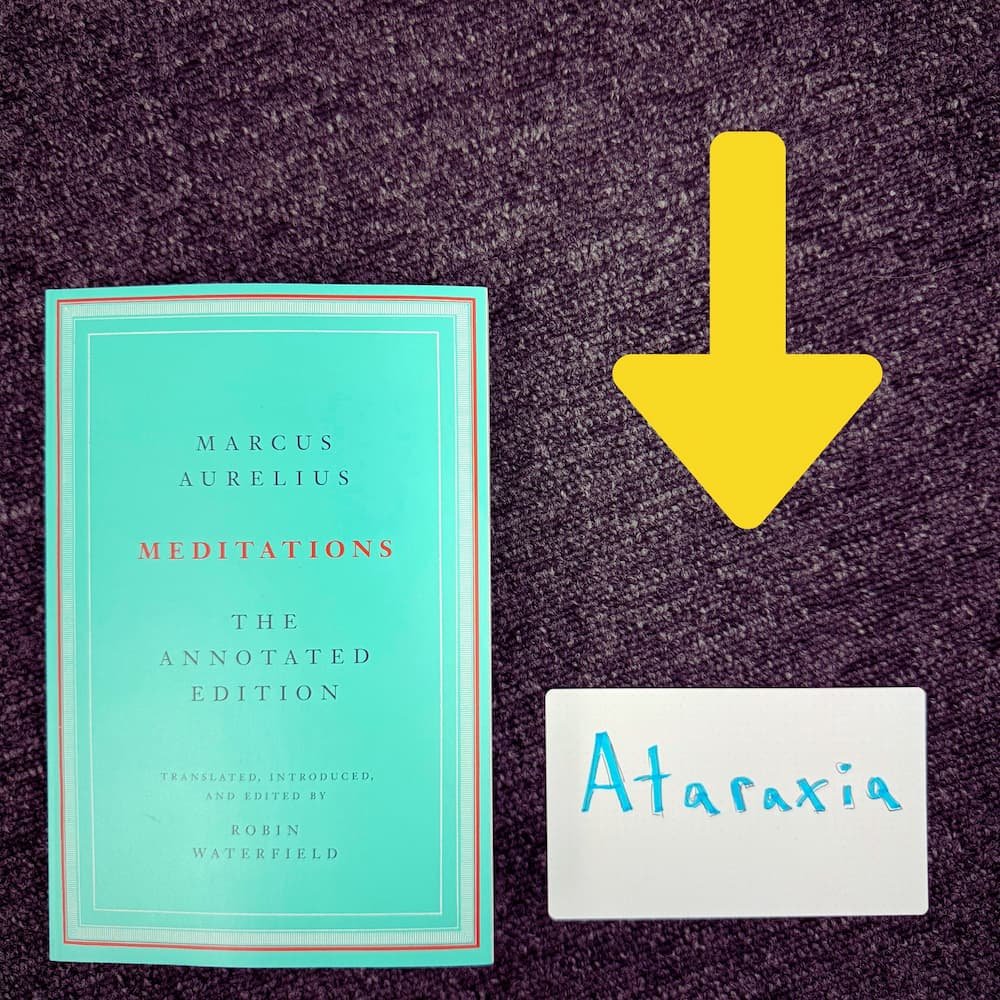Stoic philosophy has gained a lot of steam due to writers like Ryan Holiday (Love that guy). It’s always been a “popular” philosophy because it, along with other Hellenistic philosophies (Greek 323 BCE – 31 BCE) like Epicureanism and Skepticism, tries to answer a useful question: How do I live well? It’s a thing the Greeks called Eudaimonia, which is a fancy term for fulfillment.
I think that’s why they still resonate today, especially Stoicism. Who doesn’t want to live a more fulfilled life? But how do you do that? This is where another funky word comes into play:
Ataraxia, what the Greek philosophers called Balance, is the key. If you want to live in a state of Eudaimonia (fulfillment), you need some more Ataraxia (balance) in your life. Ok, there’s more to Ataraxia than balance, but it’s a good starting point for discussion. The goal is to achieve tranquility or freedom from disturbance. Think of it as watering down the anxiety in your life. That would be nice, right?
Ok, thanks, Greek philosophers. How do I get some Ataraxia? Well, that’s why there were different schools of thought. Here’s what you need to know:
Stoicism: The Stoics believed that you could practice Ataraxia by living a virtuous life. For them, that means living by nature and reason. With this school, you focus on what you can control, and you get good at responding well to the things you can’t. Hey, if Fate throws you a crappy curve ball, you don’t complain about it and ask for another pitch. You deal with it. It’s a philosophy of managed emotions. When you’re winning, you don’t celebrate too hard and when you’re down, you don’t cry about it. There’s your Ataraxia! It’s a balance of emotion.
Epicureanism: This school made some interesting requests of you. First, it was preferred that you left your family and moved into the “garden,” a private community that would help you get your priorities straight. The goal here was to find Ataraxia through living a life of simple pleasures, free from fear and unnecessary desires. If you ask me, this feels a little too cultish for my tastes. What are these unnecessary desires you ask? Well, they broke desires up into three camps.
For example:
- Natural and necessary desires = food and shelter
- Natural and unnecessary desires = fancy food and expensive homes
- Pointless or harmful desires = fame, wealth, and other reality television ingredients for entertainment
Skepticism: Ah, the skeptics! This fun group of thinkers likes to connect itself to the tradition of Socrates who questioned everything. For them, Ataraxia is achieved by avoiding decisions that could not be conclusively proven. If an argument has ambiguity, then you can suspend your action and you get to avoid the anxiety that comes with not knowing. Love them or leave them, the skeptics are fun to have at a dinner party.
The point of today’s post is to show you that while Stoicism is fun and popular, there are many schools of thought out there. We humans like to classify things (Thanks, Aristotle), be a part of the “cool kid” group, and feel like we’ve got most things figured out.
That’s why Socrates was so interesting. While he loved to classify something and get down to the root of what it meant, for him, the pursuit of truth was the highest goal, and that got him kicked so far out of the “cool kids” group that they executed him. Whoops! I guess that can happen when you’re dealing with humans who care more about feeling right about something rather than asking critical questions and keeping an open mind.
Until tomorrow, read slowly – take notes – apply the ideas.
-Eddy
